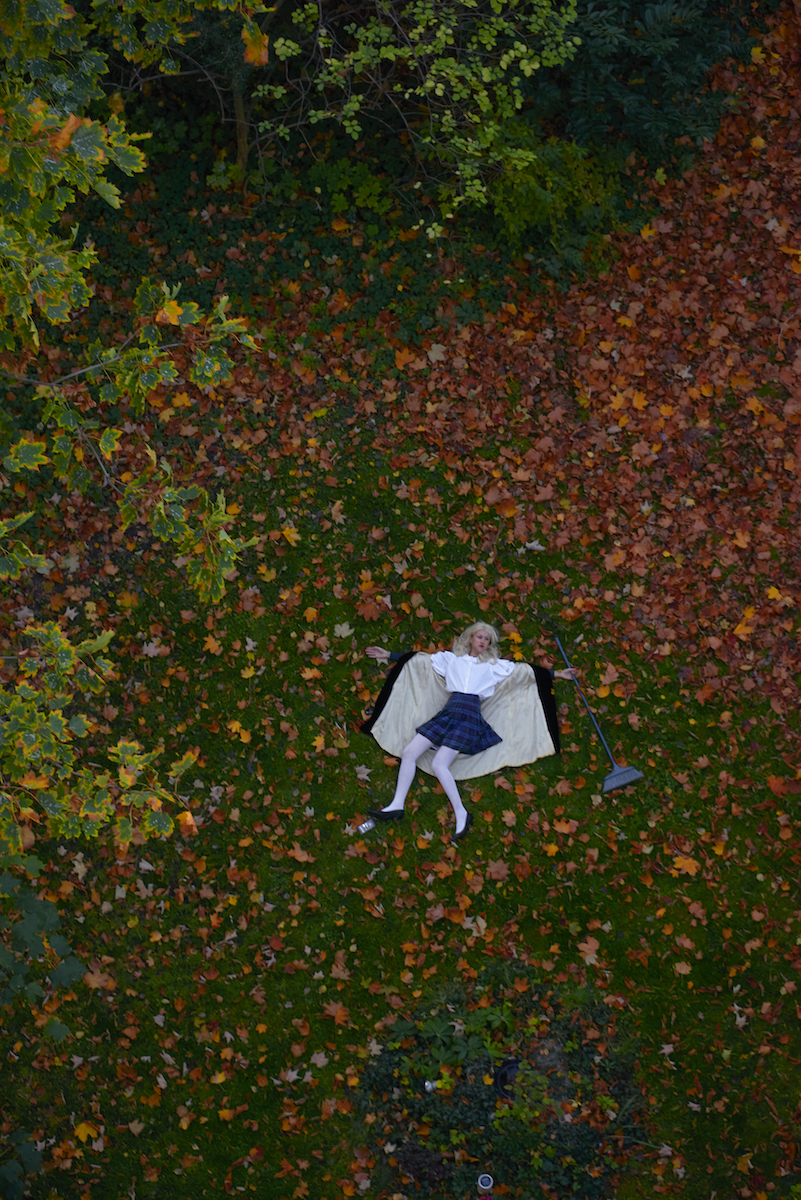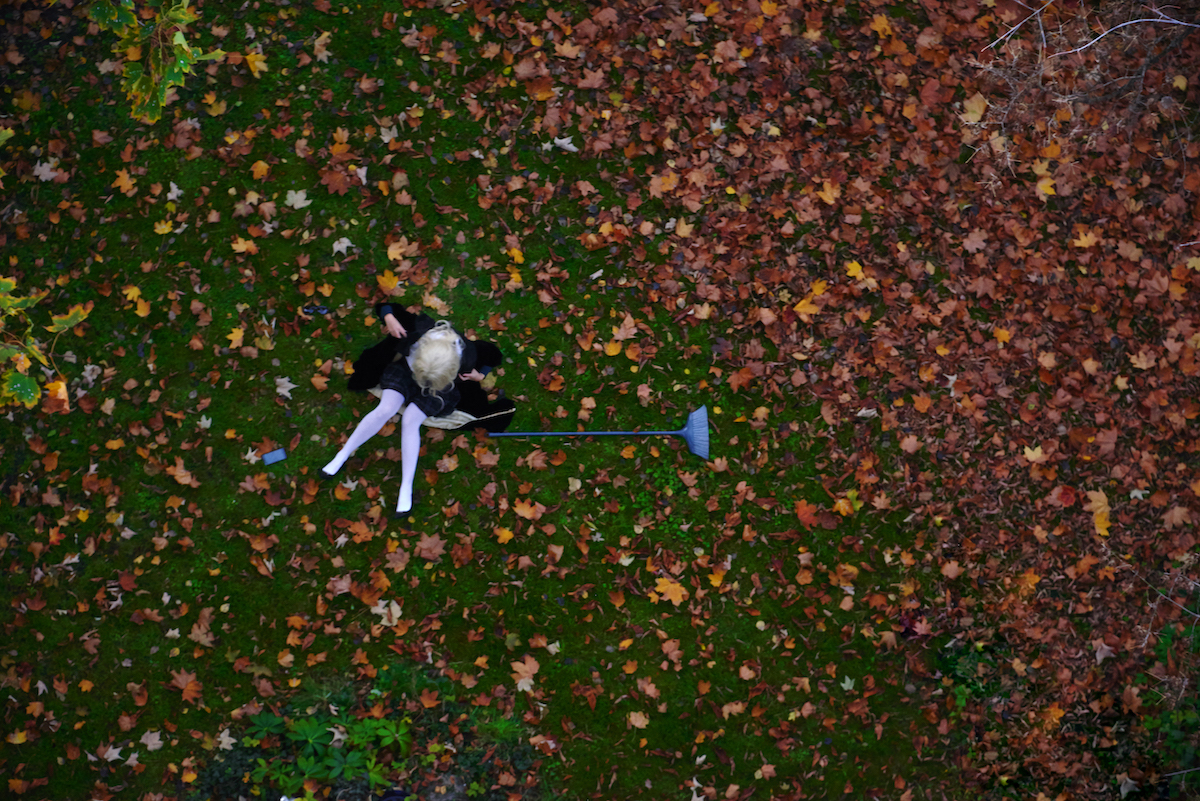Elisabeth Schaduw talks herbs, confessions and pheromones.

Scent’s effect on cognition should not be underestimated—few things can cheer one up like a whiff of a childhood comfort food, or exhilarate the senses like the intoxicating pheromones of a loved one. For perfumer Elisabeth Schaduw, this phenomenon goes beyond an inadvertent stroll down memory lane. A graduate of the prestigious Grasse Institute of Perfumery in France, Schaduw has carried its lessons in tradition and transgression into her own practice of green witchcraft, observing a “spirituality that focuses on the individual’s interaction with their environment”. With nature as her principal mentor, this good witch casts the gods and the goblins aside to make “scent potions”, translating anonymous confessions into customized perfumes that “assuage deeper kinds of distress and illness”. Despite its potent powers, scent remains “an under-explored medium for communication”, and Aphasia Lab— Schaduw’s confessional project—aims to bridge the gap between the turmoil of experience and the limits of language. Naturally, the revelations are deeply personal, and so the associations are fittingly subjective. What does shame smells like? Depending on the narrator, it might exude notes of wax and sweat, or go brown and sticky, like burnt caramel. At times when it’s impossible to find the right words the perfume witch will help you find “a very special ingredient for a very strange feeling”.
What is your very first memory connected to scent?
I was always fascinated by scents, but not necessarily by perfumes. So, my first scent memories are connected to food preparation. I was often at my grandparents’ house and they were always cooking. The steamy scent of typical Indonesian herbs, like kaffir lime leaves and ginger, would waft from the kitchen into the living room.
And what about the most powerful one, a smell-bound memory you shall cherish forever?
The first time I arrived in Indonesia. It had some sort of a herby incense, damp tropical forest kind of scent. Somehow a familiar smell, as if I could recognize my heritage. It made me feel at home; like I had been there before. And it made me understand the warmth and culture of my grandparents more.
You went to France to study perfume in a prestigious school–what was that experience like for you? What is the most valuable thing you learned during your time there?
I learned to respect traditional foundations for perfumes. Using natural ingredients. The bases, the middle notes, the top notes. But I was also taught that there is no one “correct” way to design perfumes. So, I learned not be scared to experiment and to specialize in what I most find interesting.
Perfumery is your way of practicing witchcraft and helping people heal. How and why did you embark on this pursuit? What is witchcraft to you, and do you practice it in any other ways?
It started with my obsession with floral artistry when I was working at a florist’s. I was then researching the relation between the fragility of flowers and the fragility of human anatomy. Then, I grew interested in how flowers impact people with scent, and how this is an under-explored medium of communication. I’m not practicing some medieval magical version of Witchcraft, I’m following the path of a so-called “Green Witch’, which is different and doesn’t involve a religion or a god (as Witchcraft and Wicca does). A Green Witch uses the energy of plants and trees around her to heal others. In a similar way to how techniques like yoga or mediation or exercise are used to heal those suffering from various manifestations of stress… The difference is that scents are so deeply entangled with memory, so I believe they can penetrate and assuage deeper kinds of distress and illness.
Green Witchcraft is more of a nature-based expression of spirituality that focuses on the individual’s interaction with his or her environment. I heal others with scent-potions made from essential oils that I gather from plant material. But being a Green Witch can also mean that you’re a herbalist. I go often to the forest and forage plant and mushroom materials if I can, and I love to discover their health benefits.
What do you personally find to be some of the most comforting and healing smells?
I adore warm, damp, and deep smells. The smell of dawn in the summer, of homecoming after being away for too long. But especially, the smell of being in nature in a quiet forest; that’s where my spirit really feels most wholesome.
Tell us about your confession project, “Aphasia Lab”—how do you proceed once you receive a confession? What are the essential elements of the story to be translated into perfume?
When I receive a confession, I name it after the time and date I receive it, to keep it as anonymous as possible. Then, I read it and try to reflect on the feeling it evokes in me, and then translate that feeling into colour and scent, similarly to how a person with synaesthesia might. I like to choose my ingredients in a metaphorical way, not too literally. For example, I might use the ingredient Palo Santo for a story about life and death. This is because Palo Santo is an incense ingredient that is only harvested from 4-10 year old fallen branches of naturally dead Palo Santo trees. It has to be dead for the medicinal and mystical properties to become active. The smoke of burned Palo Santo has been used in rituals for centuries to cleanse a space of negative energy, to create a new beginning of something that has ended. Thus, it is appropriate for a confession relating to life and death. If a confession references apart of the natural world, then there is probably a corresponding essential oil.
But for emotive concepts like fear, comfort or loneliness, finding the scent is more complex. I have to look deeper into the vocabulary of the materials. I have to determine subjectively which molecules or chemicals have certain associations that echo those in the confession, and those of the narrator of the confession. For one narrator, the smell of shame could smell like wax and sweat, which would then be possible to incorporate into a scent. But another narrator might describe a very different relationship to shame, and for that I might imagine a different scent—something burnt and sticky, like caramel.
Aphasia is defined as inability to comprehend or formulate language due to injury. Why did you choose this name for the project?
With my perfume, I use scent as a medium to tell stories that are unable to be told with words, or which have a meaning that goes beyond words, towards feelings and memories. So, in a way, it is like aphasia where you’re unable to find the right words for things. When you have the perfume on, you’re basically making a confession that you’re unable to find the language for.
Do you ever make perfumes to help those you actually do know, who maybe confided in you in real life, or would that not work?
I have made many perfumes for friends, but none have been the confession ones yet. Although, it is kept anonymous, so it is possible some of the confessors were (secretly) friends of mine! But part of the power of the confession perfumes is that I am interpreting strangers, and that I can only imagine them through the small part of themselves that they give me through confessions. Perhaps this project would not work so well if I had access to other information about the confessors.
Have you ever had a revealing paranormal or spiritual experience? If yes, what scent would you cook up for it?
This didn’t happen directly to me, but I used to be obsessed with old photographs of empty buildings, which, during the photograph development phase, seemed to show the outline of people inside the empty spaces. For example, Victorian photographs of churches, which seem to have ghostly women standing in the haze below a stained glass window. There was something so attractive about these mysterious women. Perhaps they were created by accidents of chemistry or were real people that weren’t seen at the time. This uncanny feeling of uncertainty and chemical interpretation has very strange scent associations. Perhaps I would use black henbane oil.
Henbane is a very ancient plant, which was used in psychoactive “magic potions” in Greek times and the medieval world, together with plants like mandrake and deadly nightshade and opium. Necromancers used it to summon the souls of the dead. And it also used to be an ingredient in beer before hops became the default. It’s a very special ingredient, for a very strange feeling.
Is intuition important in your work and life?
It’s definitely important. I mostly work on intuition, because the thing that comes to mind first is nearly always the best choice. Even after I try other things, I usually go back to that first subconscious association or insight.
What can someone’s scent tell us about them?
It can tell you more than you might think! Someone’s pheromones are a very important aspect that makes you decide if you are attracted to them. Not just as a lover, but also as a friend. Pheromones also change if a woman is ovulating. The scent of a body itself can tell you about someone’s diet and lifestyle, and the choice of perfume reveals a lot about someone’s personality and how they would like to present themselves.
Who and what inspires you in your daily life? What types of spirits do you like to surround yourself with?
I’m inspired by resilience and change. I surround myself with wanderers and people who are trying to find more, feel more, make more; of the mysteries of life on Skyrim and forest walks.All my friends are inspiring, and so are the people that I share knowledge with in groups for herbalists and perfumers. Of course, I have heroines and heroes, but the real ones are around me!
